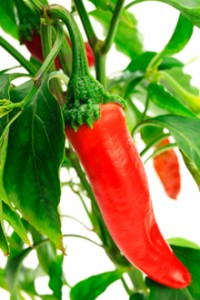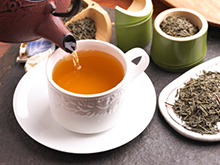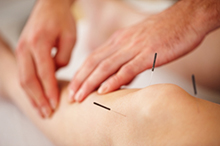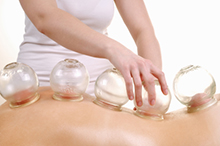Herbal remedies for weight management
Many herbs provide wonderful support to weight loss by safely boosting metabolism, curbing cravings for unhealthy snacks, and giving the energy to keep up the exercise routine. On their own, herbs won’t shed oodles of pounds, but with a good weight-loss regiment, herbs make it easier to lose weight, and that’s half the battle.
It’s helpful to understand that weight-loss plans are not ‘one size fits all’. Neither are the herbs that can assist us. We each have our own challenges, body type, and constitution. We may also have other health issues that interfere with our ability to lose weight or that cause contraindications and interactions with certain botanicals. Don’t try to do and take everything listed in this article. Listen to your body to figure out what works for you. (If you have other serious health concerns, take pharmaceutical drugs, or simply would like a hand in the process, talk with knowledgeable health practitioners who guide you.)
Boost Metabolism
These plants boost our basal metabolism – the rate at which we burn energy – by chipping away at stored “energy” or fat.
 CAYENNE (Capsicum annuum), and related hot peppers, appear to enhance metabolism and curb appetite. Cayenne is generally safe, so don’t be afraid to spice it up, but it can aggravate heartburn, ulcers, and gastritis. Studied disagree as to whether high doses increase your risk of stomach cancer.
CAYENNE (Capsicum annuum), and related hot peppers, appear to enhance metabolism and curb appetite. Cayenne is generally safe, so don’t be afraid to spice it up, but it can aggravate heartburn, ulcers, and gastritis. Studied disagree as to whether high doses increase your risk of stomach cancer.
GREEN TEA (Camellia sinensis) is revered throughout Asia as a delicious, healthy beverage. Promising clinical, animal, and lab studies support its use for attaining and maintaining a healthy weight. In one study of obese patients, those who took green tea extract while dieting lost three times more pounds and reduced their BMI more significantly compared to those who just dieted.
If you opt for green tea extract pills instead of the beverage, monitor your liver enzyme levels. Some case reports of liver toxicity with these extracts (which often contain other ingredients) have popped up, but the common tea form has a long history of safety.
YERBA MATE (Ilex paraguariensis) is a popular beverage tea of South America. The earthy, sometimes smoky tea is a rich source of antioxidants and modest amounts of caffeine. Traditionally it was used as a health tonic, and animal studies suggest that mate helps fight obesity by boosting metabolism, curbing appetite, lowering glucose levels, triglycerides, and LDL cholesterol, and inhibiting genes that aggravate obesity. Mate tea makes a nice coffee alternative. It’s important for us to maintain solid energy levels as we diet and exercise. Low energy levels can also make us seek sugar and other calorie-laden foods to give us a quick mental boost.
RHODIOLA (Rhodiola rosea) originated in Siberia, where it’s used for mental and physical energy, as well as longevity. Moderate doses are consumed on an ongoing basis to keep energy levels up, and high doses are taken short term for greater support. Over the last decade, rhodiola has become more available and popular in America as an energy tonic. Experts believe that it acts as an adaptogen, improving our overall resistance to stress, and that it helps our body produce more ATP (energy for the body). Clinical research generally supports its use for boosting physical performance during exercise and athletics. The herb is somewhat stimulative, but it doesn’t contain caffeine and has a good safety record.
 PEPPERMINT (Mentha piperita), inhaled as an essential oil, perks up our energy levels by increasing cognitive activity. In one study of athletes on the treadmill, participants reported better workload and performance levels when they inhaled peppermint versus jasmine. Keep a bottle by your desk or in your purse for a quick whiff. Or use a diffuser to scent your office or workout space for longer periods of time.
PEPPERMINT (Mentha piperita), inhaled as an essential oil, perks up our energy levels by increasing cognitive activity. In one study of athletes on the treadmill, participants reported better workload and performance levels when they inhaled peppermint versus jasmine. Keep a bottle by your desk or in your purse for a quick whiff. Or use a diffuser to scent your office or workout space for longer periods of time.
GREEN TEA & YERBA MATE contain modest amounts of caffeine and ample antioxidants to give us a slight boost during the day or before a workout.
Curb Cravings
If you’re having a hard time passing up unhealthy treats, herbs can help with it. Remember, though, that not everyone eats because they’re hungry. If you eat because you’re bored or stressed, some appetite suppressants may not work as well.
HOLY BASIL (Ocimum sanctum, O. Tenuiflorum), or tulsi, is treasured in India and has recently gained popularity in America. Ayurvedic medicine uses holy basil for a wide variety of health concerns, including colds and flu, protection from radiation, and for balancing the doshas (Ayurvedic constitutional types). Here in the United States, it is known for its ability to modulate levels of the stress hormone cortisol to relieve tension, improve mental focus, and balance blood sugar. According to the interplay of these activities, holy basil does a nice job curbing cravings for sugar.
HOODIA (Hoodia gordonii), a cactus-like plant from Africa, made a quite a splash on the ‘miracle pill’ scene a few years ago, thanks to its incredible ability to suppress the appetite. The native people of the Kalahari desert have consumed hoodia for thousands of years to decrease their desire for food and water and to enhance their energy levels. If you’re thinking about buying hoodia, make sure you get real hoodia (plant is low-growing and market is loaded with fakes).
FIBER & GLUCOMANNAN reduce hunger by adding bulk to the digestive system to help absorb food more slowly, stabilize blood sugar, and make people feel fuller. Certain sources of soluble fiber appear to be most effective: apples, pears, psyllium and glucomannan, the soluble fiber extracted from konjac root (Amorphophallus konjac). This last one made headlines in health magazines for its ability to improve weight loss and reduce food consumption, blood sugar, and cholesterol. Studies have found that 1 to 4 grams of glucomannan taken before meals significantly enhanced weight loss. But studies have found that eating an apple or pear before meals also significantly improves weight loss and reduces the amount of calories consumed throughout the day.
Blood Sugar Issues
Over-consumption of sugar is at the core of most of America’s weight problem.
CHROMIUM mineral levels tend to be deficient in individuals with insulin resistance and type 2 diabetes. A high carbohydrate diet is not only low in chromium; it also directly reduces chromium levels in the body. Studies have found that chromium supplementation can help correct the body’s metabolism, blood sugar, and cholesterol levels. Brewer’s yeast (not nutritional yeast) is our richest food source of chromium.
CINNAMON (Cinnamomum spp), a familiar baking spice, appears to reduce blood sugar and improve the cell’s sensitivity to insulin, which can help correct metabolism. Just a teaspoon to a tablespoon of powdered cinnamon seems to help. For a delicious, sweet cinnamon tea, simmer one to three sticks of cinnamon or a teaspoon to a tablespoon of cinnamon “chips” in eight ounces of water for 20 minutes. This has the added benefit of offering something sweet for your palate while actually lowering your blood sugar. Cinnamon is best consumed with food; taking it on an empty stomach can cause hypoglycemia.
HOLY BASIL, as mentioned, also helps improve our sugar balance.
Low Thyroid
Both subclinical and acute hypothyroid conditions are on the rise, particularly in women. Several factors may be at play, not all of which are understood. Many holistic practitioners believe that stress and poor diet (including iodine deficiency) are to blame. Poor thyroid function can cause weight gain, exhaustion, depression, poor mental focus, increased pain, weak hair, skin, and nails, and goiter (enlarged thyroid). Simple lab tests are usually necessary to diagnose a thyroid problem. Be aware that suggested ranges of thyroid hormones have changed, meaning that more people have subacute thyroid problems than previously thought. Unfortunately, not all labs and practitioners are on board with the new standards.
ASHWAGANDHA (Withania somnifera) shows promise as one of the few herbs that enhance thyroid function. Animal studies suggest that ashwaganha increases levels of the thyroid hormone T4 and possible T3. The root is traditionally used to enhance energy and vitality, support the nervous system, and reduce pain.
IODINE is necessary for adequate thyroid function. If you have low thyroid function and your iodine levels are deficient, you may want to increase your dietary levels of this mineral through a multivitamin (not all contain iodine), iodized salt, and seaweed, including bladderwrack (Fucus vesiculosus).
Avoiding goitrogens, or food that may inhibit thyroid function by reducing iodine levels, offers help for many with thyroid problems. Soy, in its many forms, is a common aggravator. Broccoli-family plants can also slow down the thyroid, particularly if they’re not cooked. Caffeine may also reduce thyroid function. Some foods, such as coconut, avocado, and saturated fat, seem to enhance thyroid function.
Chronic Stress
Chronic stress is connected with poor blood sugar metabolism, thyroid function, and many other factors that impede our ability to maintain a healthy diet and lose weight. When we’re under stress, our body throws sugar into our bloodstream to give us energy. Long-term stress can lead to high blood sugar levels, even if our diets aren’t particularly high in carbohydrate. This, in turn, leads to poor metabolism. Our stress hormones can also interfere with other hormones, including thyroid and reproductive hormones. Our sleep becomes less restful, which further aggravated the body’s balance.
ADAPTOGENIC HERBS appear to modulate stress hormones and improve our resistance to tension. As a result, they improve our energy levels and offer other benefits, including improved immunity. That is why most herbalists think of adaptogens as our superheroes.
Many of the herbs already discussed, such as holy basil, rhodiola, and ashwagandha, are believed to have adaptogen properties. Others include eleuthero (Eleutherococcus sentiocosus), ginseng (Panax spp), codonopsis (Codonopsis spp), and gotu kola (Centella asiatica). Some are more relaxing (holy basil, gotu kola, ashwagandha), while others are more stimulating (rhodiola, ginseng, eleuthero, codonopsis). They all have their specialties, and it is better to use them in combination or singularly, depending on a person’s needs and constitution.
SEROTONIN is neurotransmitter associated with mood health. Low serotonin levels seem to cause and aggravate depression, anxiety, and insomnia. Supplements like L-tryptophan, 5-HTP, and St. John’s wort (Hypericum perforatum) may enhance our serotonin balance. Fish oil may also help improve mood. Use caution with St. John’s wort if you take pharmaceutical drugs. Consult a practitioner before taking any of these if you’re on antidepressant drugs.
LAVENDER (Lavandula spp) essential oil is well-known for its relaxing properties when inhaled. Clinical research supports its reputation for calming the nervous system, improving mood, and enhancing sleepiness. Other essential oils, such as citrus, seem to have more uplifting effects. Use lavender as you would peppermint essential oil described above.
Women’s Health Concerns and Acupuncture.
 The biggest threats to women’s health are often preventable. Oriental medicine has always addressed the special needs of women throughout their lives and many health issues women face respond extremely well to acupuncture treatments. Taking small steps to improve your health can make a difference.
The biggest threats to women’s health are often preventable. Oriental medicine has always addressed the special needs of women throughout their lives and many health issues women face respond extremely well to acupuncture treatments. Taking small steps to improve your health can make a difference.
The top health concerns affecting women and how acupuncture can help are:
Cardiovascular Disease
As the number one threat to women’s health, cardiovascular disease is not just a man’s disease. In women, the condition is responsible for about 29% of deaths, reports the CDC. Although more men die of heart disease than women, females tend to be under diagnosed, often to the point that it’s too late to help them once the condition is discovered. By integrating acupuncture and Oriental medicine into your heart healthy lifestyle, you can reduce your risk of cardiovascular disease by as much as eighty percent.
Steps to prevention include managing high blood pressure and cholesterol, quitting smoking, eating healthy, maintaining a healthy weight, physical activity, reducing stress and improved sleep – all of which can be helped with acupuncture and Oriental medicine. Acupuncture has been found to be particularly helpful in lowering blood pressure. By applying acupuncture needles at specific sites along the wrist, inside the forearm or in the leg, researchers have been able to stimulate the release of opiods, which decreases the heart’s activity and its need for oxygen. This, in turn, lowers blood pressure.
Cancer
There have been many advances in the early detection and treatment of cancer. While the standard medical care for cancer is effective, the treatments are aggressive and cause numerous unwanted side effects as well as a lowered immune system. The three most common cancers among women are breast, lung and colorectal cancer. While breast cancer is the most common cancer in women it is second in the leading cause of cancer death. Early detection screenings and recommended self examinations should be taken seriously.
Acupuncture has received much attention as an adjunctive therapy in cancer treatments for its use in pain relief, reducing side effects, accelerating recovery and improving overall quality of life.
From a preventive approach Oriental medicine works to restore imbalances in the system with a variety of treatment modalities including acupuncture, herbal therapy, tui na, qi gong in addition to food, exercise and lifestyle suggestions. Seasonal acupuncture treatments just four times a year serve to tonify the inner organ systems and correct minor annoyances before they become serious problems.
Osteoporosis
 Characterized by a decrease in bone mass and an increased likelihood of fractures osteoporosis is not simply a calcium deficiency. As a complex living tissue, bone is made of many different components and is influenced by many variables including the body’s use of calcium from the bone to balance pH levels in the blood. Osteoporosis threatens 44 million Americans, of which 68% are women, reports the National Osteoporosis Foundation.
Characterized by a decrease in bone mass and an increased likelihood of fractures osteoporosis is not simply a calcium deficiency. As a complex living tissue, bone is made of many different components and is influenced by many variables including the body’s use of calcium from the bone to balance pH levels in the blood. Osteoporosis threatens 44 million Americans, of which 68% are women, reports the National Osteoporosis Foundation.
“Osteoporosis is largely preventable,” says Mark. “The behaviors that women develop in their childhood, in their adolescence, and in their early adult years really play a significant role in the development of the disease.” That’s because bodies build up most of bone mass until age 30. Then new bone stops forming and the focus switches to the maintenance of old bone.
Acupuncture and Oriental medicine coupled with a healthy lifestyle and regular exercise, have much to offer in improving the quality of life for those who suffer from bone and joint problems.
Depression
Depressive disorders affect 10%-25% of women at some point in their lives. The body’s immune system is compromised and symptoms reduce functioning, impair work performance and social relationships. Common symptoms of depressive disorders include: a decreased interest in most activities, insomnia, fatigue, and feeling empty and worthless. At its worst, hopelessness sets in and suicide becomes a desperate option for approximately 15% of people who suffer from severe depressive disorders.
Oriental medicine does not view people as a collection of segmented parts to be treated independently but rather addresses the link between the body, spirit and mind. The goal of Oriental medicine is to bring all the human systems into a healthy balance, insuring that both the mind and body feel well and when used in conjunction with psychotherapy acupuncture has a positive and holistic effect on depressed patients. If you suffer from depression, consider acupuncture therapy in conjunction with your treatment plan to regain peace of mind, regulate your immune system and stay healthy.
Autoimmune Diseases
Autoimmune diseases are a group of disorders in which the immune system attacks the body and destroys or alters tissues. There are more than 80 serious chronic illnesses in this category, including lupus, multiple sclerosis, and type 1 diabetes.
According to the American Autoimmune Related Diseases Association (AARDA), about 75% of autoimmune diseases occur in women. Individually, each disease appears uncommon with the exception of diabetes, thyroid disease, and lupus however as a group, the disorders make up the fourth-largest cause of disability among American women.
Due to the complexity of treating autoimmune disorders, integrative medicine solutions have received much attention as successful therapies in their treatment. Acupuncture and Oriental medicine are specifically noted for use in pain relief, regulating the immune system, managing symptoms and improving overall quality of life.
Menopause and Gynecological Health
 Gynecological conditions including Premenstrual Syndrome (PMS), fibroids, endometriosis, and infertility along with menopause are some of the most successfully treated problems by acupuncture and Oriental medicine. Oriental medicine has long recognized that health and vitality can be sustained over a woman’s lifetime by restoring balance within the body and supporting the natural production of essential hormones.
Gynecological conditions including Premenstrual Syndrome (PMS), fibroids, endometriosis, and infertility along with menopause are some of the most successfully treated problems by acupuncture and Oriental medicine. Oriental medicine has long recognized that health and vitality can be sustained over a woman’s lifetime by restoring balance within the body and supporting the natural production of essential hormones.
Menopause is a transitional period marking the cessation of ovulation in a woman’s body. Symptoms vary from mild to severe, and are brought on as our bodies try to adapt to decreasing amounts of estrogen. Symptoms can include hot flashes, night sweats, insomnia, fatigue, mood swings, memory loss, dryness, headaches, joint pain, and weight gain. Menopause patients are encouraged to maintain a healthy weight, stabilize blood sugar, and eliminate stress, tension and anxiety or learn new techniques to cope with them to diminish the effects they have.
Oriental medicine does not recognize menopause as one particular syndrome and aims to treat the specific symptoms that are unique to each individual using a variety of techniques such as acupuncture, herbs, bodywork, lifestyle/dietary recommendations and energetic exercises to restore imbalances found in the body. Therefore, if 10 women are treated each will receive a unique, customized treatment with different acupuncture points, different herbs and different lifestyle and diet recommendations.
With support from Acupuncture and Oriental Medicine along with small changes in lifestyle and diet, menopause can be a time of a revival of vital energy and an opportunity for personal growth.
To learn more about how acupuncture and Oriental medicine can improve your health and wellbeing call for a consultation today!
